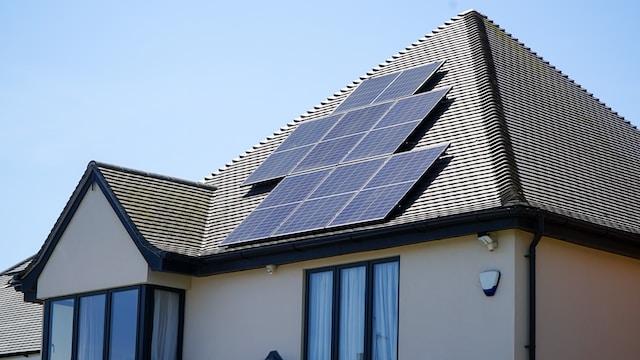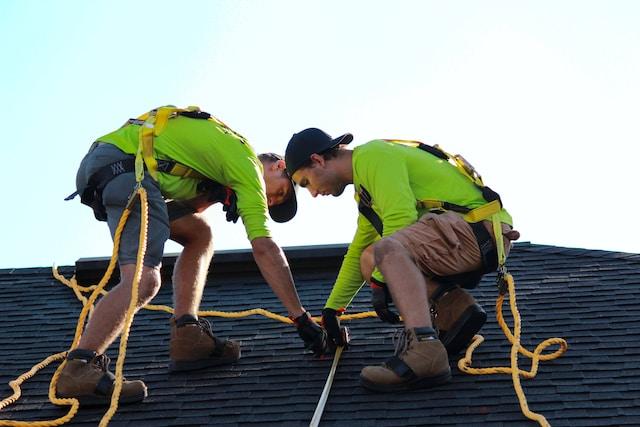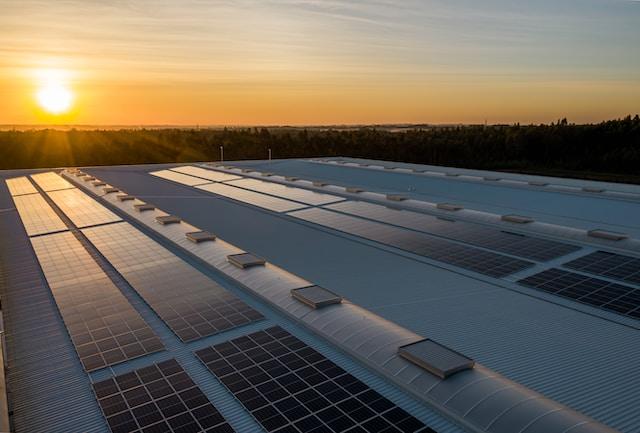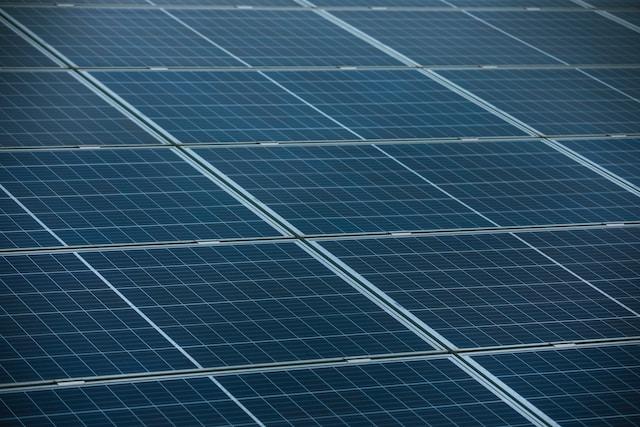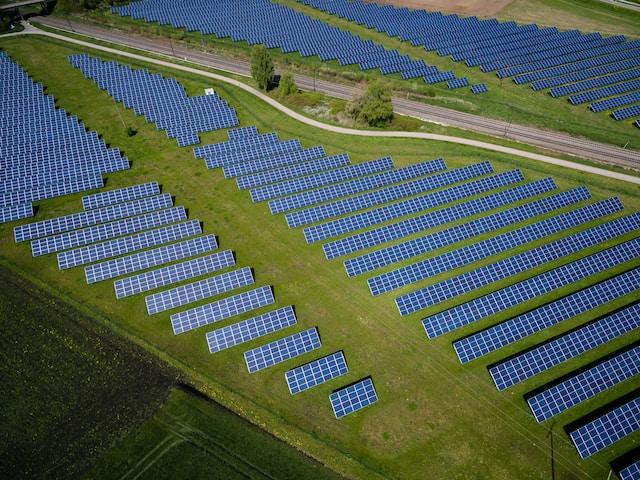
Can Solar Panels Damage Your Roof? Unveiling The Truth
Introduction
As we navigate towards greener energy solutions, solar energy has emerged as a leading player, experiencing unprecedented growth worldwide. Harnessing the power of the sun, homeowners are increasingly turning to solar panels as a sustainable and cost-effective energy alternative. However, amidst the excitement surrounding this renewable energy source, there lurks a common question that gives many potential solar adopters pause: "Can solar panels damage my roof?" This concern, while understandable, often stems from misconceptions about solar panel installation and maintenance. In this article, we aim to dispel these doubts, shedding light on the relationship between solar panels and roof integrity. We'll delve into the factors that can affect your roof and explore how solar panels might impact its longevity.
Solar Panels and Roof Damage: The Common Misconception
It's not uncommon to hear homeowners express worry about the potential for solar panels to damage their roofs. A common misconception is that the installation and presence of these panels could cause structural damage or lead to leaks. These fears are fueled by the belief that drilling holes into the roof for panel installation inevitably weakens the structure or opens the door for water seepage. Others worry that the added weight of solar panels might overburden their roof, leading to long-term structural issues. However, it's essential to understand that these concerns, while valid, often stem from misunderstandings or worst-case scenarios rather than the norm. Properly installed and maintained solar panels are typically not a threat to your roof's integrity. In fact, they may even offer some protective benefits. In the following sections, we'll examine the installation process, discuss the potential protective properties of solar panels, and offer tips for ensuring your roof remains in top condition as you harness the power of the sun.
The Installation Process: Minimizing Risks
The installation process of solar panels is a meticulous task engineered to protect your roof, not damage it. First, the installer performs a thorough inspection to ensure your roof is structurally sound and suitable for solar panels. After this, the installer uses durable mounting hardware, which includes standoffs that lift the panels off the roof, providing space for water runoff and air circulation. The holes drilled for these mounts are carefully sealed to prevent any possibility of leaks. The panels themselves are evenly distributed and secured to distribute weight appropriately, ensuring no undue stress is placed on your roof. The key to minimizing any potential damage lies in the hands of professional, experienced installers. Choosing a certified solar installation company can provide peace of mind, as these professionals adhere to stringent industry standards, use high-quality materials, and are trained to protect your roof during the installation process. As we'll discuss later, the right installation partner can make all the difference in ensuring your transition to solar energy is seamless and worry-free.
Why Solar Panels Might Actually Protect Your Roof
Contrary to the popular belief that solar panels could potentially harm your roof, the reality is that they might actually serve as a protective shield. Solar panels, once installed, cover a substantial portion of your roof, thereby reducing its direct exposure to harsh environmental elements such as rain, snow, wind, and UV rays. This added layer of protection can decrease weather-related wear and tear, potentially extending the lifespan of your roof. A study by the National Renewable Energy Laboratory supports this claim, indicating that roofs with solar panels often show less signs of aging compared to uncovered areas. Furthermore, the cooling shade provided by the panels can help regulate your roof's temperature during hot summer months, thus reducing thermal cycling which can cause materials to expand and contract, leading to potential damage over time. The benefits of solar panels extend beyond energy savings and reduced carbon footprint, offering an unexpected advantage in roof protection. As we explore further, remember that the key to unlocking these benefits lies in proper installation and regular maintenance.
Factors That May Lead to Roof Damage
While concerns about solar panels causing roof damage often grab the spotlight, it's crucial to acknowledge the other, more prevalent factors that can harm your roof. Independent of solar panels, the age of your roof is a significant factor. Roofs, like any other part of your home, have a certain lifespan, typically around 20-30 years for many common materials. As roofs age, they naturally become more susceptible to leaks and structural damage. Another key factor is improper installation, not just of solar panels, but of the roof itself. Poor workmanship during the roofing process can lead to a host of problems, including leaks, reduced lifespan, and increased susceptibility to wind and weather damage. Lack of regular maintenance is another common culprit. Routine inspections and timely repairs can catch small issues before they become major problems, extending your roof's lifespan and maintaining its integrity. Whether you're considering solar panels or not, understanding these factors and prioritizing regular maintenance and quality installation can help ensure the health of your roof in the long run.
Choosing the Right Solar Panel Installation Company
Choosing the right solar panel installation company is a crucial step in your journey towards harnessing solar energy. Partnering with a certified and experienced installation company can make all the difference in both the short and long-term performance of your solar system, and importantly, the integrity of your roof. Look for companies that are certified by recognized industry bodies such as the North American Board of Certified Energy Practitioners (NABCEP). This certification indicates that the company's installers have undergone extensive training and adhere to high industry standards. Additionally, consider the company's experience and track record. A company with a history of successful installations is more likely to deliver quality workmanship. Don't forget to check customer reviews and ratings to gain insights into other homeowners' experiences. Ask about the warranty they offer, not just for the panels, but also for their workmanship. This can provide extra peace of mind, knowing that any potential issues would be addressed. Choosing the right installer is an investment in the success of your solar project, and the protection of your most valuable asset, your home.
What to Do If Your Roof is Not Suitable for Solar Panels
If your roof isn't suitable for solar panels, due to its age, structure, or shading, don't worry, you still have options to participate in the solar revolution. Ground-mounted solar panels are a viable alternative that allows you to install panels on a free piece of land rather than on your roof. These systems can be positioned optimally to maximize sun exposure and are easily accessible for maintenance. Community solar programs are another excellent alternative. These programs allow you to buy or lease a portion of a larger, shared solar farm located off-site. You'll receive credit on your electricity bill for the energy your share produces, allowing you to enjoy the benefits of solar energy without any installations on your property. Green energy solutions are becoming increasingly versatile, ensuring that anyone can reap the benefits of solar energy, regardless of their home's suitability for rooftop panels. As the future moves towards sustainability, these alternatives ensure that everyone can contribute to, and benefit from, the transition to renewable energy sources.
Conclusion: Weighing the Pros and Cons
In conclusion, while the concern about solar panels damaging roofs is common, it's largely based on misconceptions. The reality is that with professional installation and regular maintenance, the risk of damage is minimal. In fact, solar panels can even serve as a protective layer for your roof, guarding against environmental elements. It's essential to choose an experienced, certified solar panel installation company to ensure the highest standards of workmanship. For those with unsuitable roofs, alternatives like ground-mounted panels or community solar programs offer a way to benefit from solar energy. We encourage you to weigh these points, considering the potential benefits against the minimal risks. If you're considering transitioning to solar, consult with a solar energy professional who can assess your specific situation and guide you towards the best solution. Embrace the future of energy with confidence and information on your side.
May 1, 2023
Share:
Fresh off the Press
Continue reading
Newsletter
Your journey towards a sustainable lifestyle starts here!
Join our newsletter for the latest on solar panels and clean energy breakthroughs.

